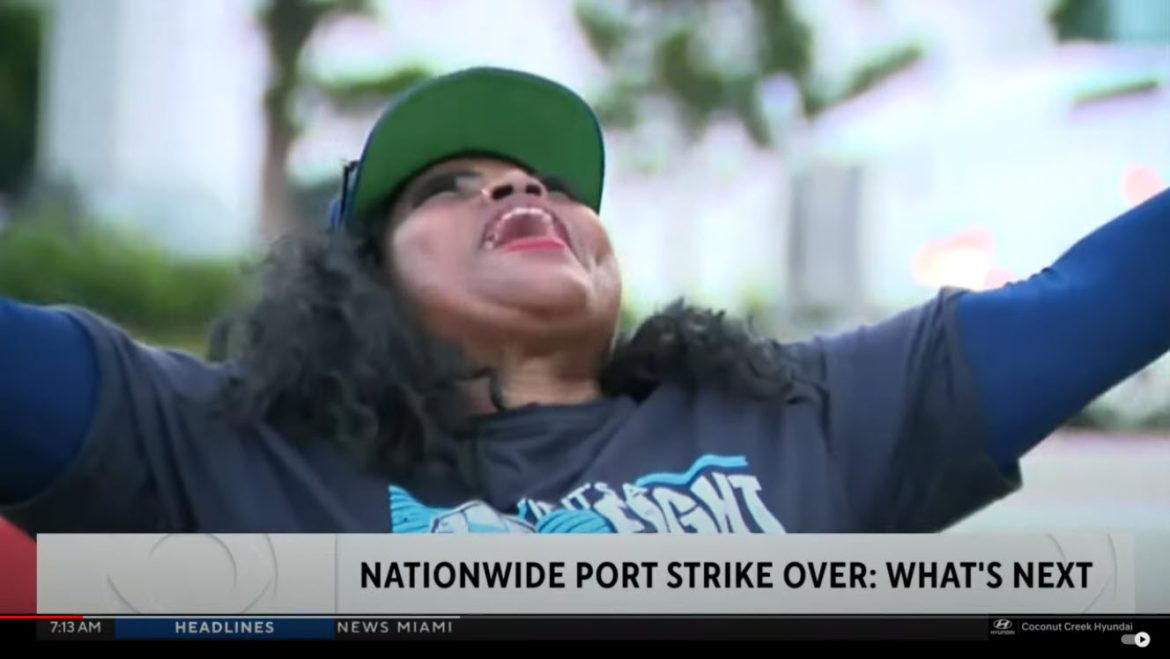A tentative agreement has been reached to end the widespread dockworkers strike that brought ports along the Gulf and East coasts to a halt this week. The International Longshoremen’s Association (ILA), representing approximately 45,000 dockworkers from Maine to Texas, reached the deal with management groups late yesterday. The agreement focuses on wage increases, a central issue that led to the strike, which began on Tuesday morning and threatened to disrupt the U.S. supply chain at a critical time.
The strike, which impacted major ports along the Atlantic and Gulf seaboards, caused significant concern about potential shortages and rising prices, particularly as the country continues to recover from the effects of Hurricane Helene. Dockworkers had walked off the job, demanding better wages and improved working conditions, prompting fears of significant delays in the flow of goods and critical supplies.
President Joe Biden reacted swiftly to the news, issuing a statement of gratitude to both sides of the negotiation. “I want to thank the union workers, the carriers, and the port operators for acting patriotically to reopen our ports and ensure the availability of critical supplies for Hurricane Helene recovery and rebuilding,” Biden said. His administration had been closely monitoring the situation, given the potential economic and logistical impacts.
South Florida Union Leader Applauds Suspension of Strike
Johnnie Dixon, the president of the local International Longshoremen’s Association union in South Florida, praised the tentative deal, expressing optimism about the reopening of ports and the resumption of work. “We’re excited that the supply chain has reopened,” Dixon said, emphasizing the relief this deal brings not just to dockworkers but to businesses and consumers who depend on the timely arrival of goods.
Dixon noted that if the strike had continued, it could have caused significant disruptions, leading to shortages of essential items and potentially higher prices for consumers. “We understand the importance of our work, especially as people across the country depend on us, especially in times like these,” he said, referencing the ongoing recovery efforts in the wake of Hurricane Helene.
Strike’s Potential Impact and Swift Resolution
The strike had the potential to cause widespread disruptions to the U.S. economy, especially as key ports such as those in New York, New Jersey, Houston, and Miami were affected. These ports are critical hubs for imports of food, electronics, and construction materials—items that are vital for the continued rebuilding efforts in areas hit hard by Hurricane Helene.
Supply chain experts had warned that if the strike were prolonged, consumers might have faced higher prices for everyday goods, and businesses could have experienced delays in manufacturing and distribution. The quick resolution, however, has helped to avert these issues, and workers are expected to return to the docks immediately while the final terms of the agreement are worked out.
Next Steps for the Tentative Agreement
While the tentative deal addresses the dockworkers’ demands for wage increases, union members still need to vote on the agreement in the coming weeks to ratify it. This process will determine whether the strike is officially over or if further negotiations will be required. Both the ILA leadership and management groups have expressed optimism that the deal will be accepted by union members.
For now, the suspension of the strike has brought much-needed relief to the ports and industries that depend on them. Port operators and shipping companies are scrambling to make up for the lost time during the strike, working to clear backlogs and ensure that goods reach their destinations as quickly as possible.
The Biden administration has pledged continued support for the reopening of the ports and the resolution of any remaining issues, particularly in areas impacted by Hurricane Helene, where timely delivery of materials is critical for ongoing recovery efforts.



